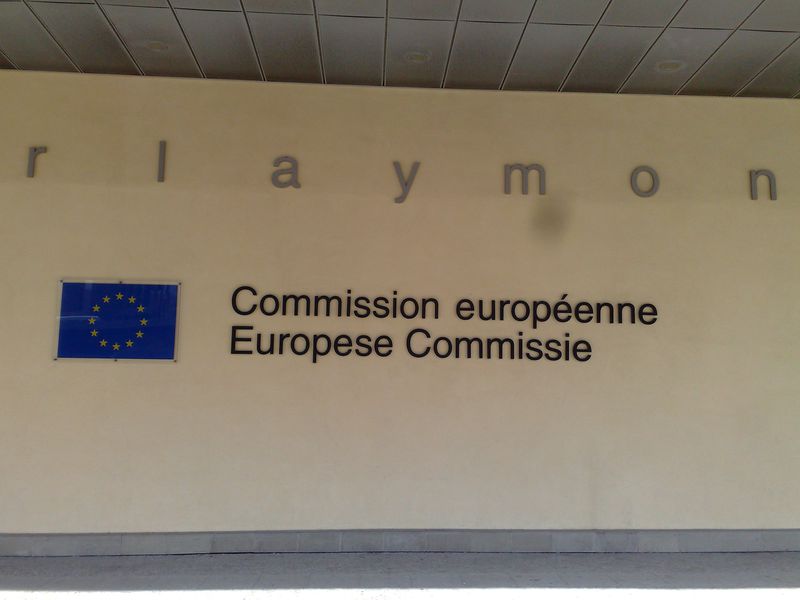The revision of the budget is legalizing the huge fiscal deficit
Adelina Marini, May 30, 2010
 Quite strong words used the economists from the Institute for Market Economy Svetla Kostadinova, Petar Ganev and Dr. Richard Ran to explain the government's intentions to revise Budget 2010. They said that the government is on its way to officially abandon reason in its fiscal policy and the changes in Budget 2010 would legitimize the huge fiscal deficit. "Spending fiscal reserve shows government's inability to make a balanced policy which undermines foreign investors' confidence and prevents people from seeing what the next measures would be", Svetla Kostadinova explained.
Quite strong words used the economists from the Institute for Market Economy Svetla Kostadinova, Petar Ganev and Dr. Richard Ran to explain the government's intentions to revise Budget 2010. They said that the government is on its way to officially abandon reason in its fiscal policy and the changes in Budget 2010 would legitimize the huge fiscal deficit. "Spending fiscal reserve shows government's inability to make a balanced policy which undermines foreign investors' confidence and prevents people from seeing what the next measures would be", Svetla Kostadinova explained.
Using the fiscal reserve for operational spending will have a negative effect on all citizens in Bulgaria. The economists did not spare words for another intention of the government - to increase spending, especially in terms of subsidies. Ms Kostadinova quoted the planned 116 mn levs (59 mn euro) in support to tobacco producers. According to her this is a result of lobbyism's success and more: "Helping tobacco producers is absolutely outrageous! This is an extremely arrogant abuse with the situation by lobbyists. A typical example of lobbyism and also of the government's inability to defend its positions and strike on the table".
Against the background of these sharp words Dr Richard Ran said that actually our country was in a quite good situation because of Bulgaria's debt to GDP ratio and also in terms of budgetary deficit. This situation must be used at best in order to avoid the Greek scenario. He also said that resorting to fiscal reserve was a very bad idea and added that the fiscal problems (not only in Bulgaria) were due to very generous pension systems as well as to every citizen's wish to get free health care.
Sticking to IME's style Dr Ran explained that there was no "free" health care - always someone paid. If the government pays this only means that the "free" part is being paid by taxpayers who have to work more in order to compensate for those who don't or can't. IME's recommendations in this context are the government to reduce the number of the vulnerable groups, to start immediate structural reforms (most of all health care and pensions), to continue with privatisation and concessions, to suspend subsidies, reduce the number of the civil servants in the public administration and speed up e-government.
The presentation of IME's ideas started with the following quote: "The budget has to be balanced, the Treasury has to be filled, the public debt has to be reduced, the arrogance of bureaucracy has to be softened and controlled ... to avoid Rome's bankruptcy". These words are Cicerone's and are dated 63 years before Christ.
And while for Richard Ran what the government can do is not bound to the global economic situation, the analysts from the Carnegie Endowment for International Peace say that the euro crisis is much bigger than it seems because of the much worse situation in EU's newcomers. In their analysis Uri Dadush and Shimelse Ali point out that all the eight newest EU members (Bulgaria, the Czech Republic, Estonia, Hungary, Latvia, Lithuania, Poland, and Romania) already suffer from the problems that dragged Greece, Ireland, Italy, Portugal, and Spain into crisis: lost competitiveness, widening external deficits, and deteriorating public finances.
What is more interesting in their analysis is that the peggers Estonia, Latvia, Lithuania, and Bulgaria, who have fixed exchange rates - are in much worse shape than the rest. Their internal and external imbalances have increased significantly in the peggers no matter that pegging their national currencies to the euro seemed advantageous in the pre-crisis boom. The reason for this is that the floaters enjoyed a less pronounced boom, but, with a wider range of policy instruments at their disposal, they were also able to moderate their recessions. Currency depreciation and expansionary monetary policy helped.
As if in response to deputy prime minister Simeon Dyankov's strategic goal Bulgaria to join the eurozone in the near future, Carnegie Endowment says that none of the newcomers appear ready to adopt the euro soon, even assuming that the Euro area countries were able to quickly restore stability and investor confidence in their economies.
And another very important thing - no matter the painful austerity measures the newcomers undertook during the recession, the core problems in these non-euro economies are a loss of competitiveness and excessive allocation of resources towards non-tradable sectors. According to Uri Dadush and Shimelse Ali the problem is not fiscal mismanagement - a statement which might prove disputable in Bulgaria's case where the ruling majority misleads society and investors with regard to the real situation of the fisc and the government's intentions to solve the problem.
According to the analysts there are three major lessons for the newcomers, Bulgaria should read attentively! First, competitiveness needs to be closely monitored and, since currency devaluation is not an option under the euro. The solution is urgent reforms. Second, special attention needs to be placed on wage-setting and labor market flexibility, as well as on how to bolster the tradable sector. And third, there is a strong case for moderating the inflow of foreign capital, especially debt-creating capital, during the early years of euro adoption via tighter bank regulations on borrowing abroad and general capital controls.
In conclusion the authors recommend the new member states with ambitions for the euro area to assess their situation and apply these valuable lessons to avoid much painful adjustments in the future.
In fact, these lessons should be apprehended attentively not only by the ruling majorities but by voters as well, because this is about their personal well-being and about their money.
 | © euinside
| © euinside | © euinside
| © euinside | © euinside
| © euinside